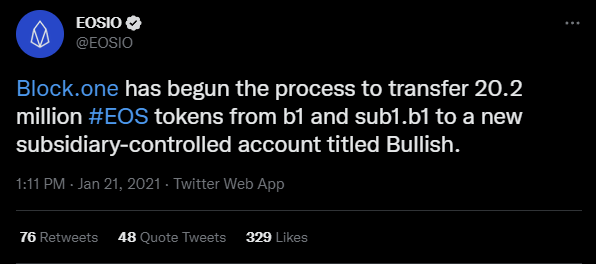What Happened To EOS?

The Dan Larimer-created Ethereum killer was meant to be the next big thing after Dan left Steemit, but EOS has seemingly fallen off the blockchain radar. Nobody talks about it anymore. I don't hear developers building on it or anyone publicly boasting they own EOS tokens.
While EOS isn't dead, it's not in the top five like it was in 2018. It also didn't get anywhere near killing Ethereum.
Where did it all go wrong?
Like most other blockchain/cryptocurrency projects from around 2018, it all started with an ICO and flashy marketing. An initial coin offering used to be a great way to make a return on an investment based on the hype driving up the price for projects like EOS.
Somehow Dan and his cohorts managed to get investment from the likes of PayPal co-founder Peter Thiel and hedge fund billionaires who collectively invested billions in EOS.
It went downhill when EOS's governance approach through proof-of-stake of 21 block producers (witnesses) resulted in a controversial event in June 2018. Block producers froze 34 accounts and did it in two stages. There was no explanation other than suspected stolen funds, and the cryptocurrency community was up in arms about it. Strike one.
In 2019, Block.One (the parent company at the time of EOS) was accused of fraud and illegal securities selling. The ICO was successful and made a lot of money, but it wasn't registered. The SEC fined them $24 million. It doesn't end there.
Token holders then sued Block.One after the fine calling the ICO a fraudulent scheme. Strike two.
By June 2020, 95% of all EOS blockchain activity was mostly non-economic. You had this super fast blockchain capable of many transactions processing useless transactions and not getting anywhere near the scale it was reported to handle.
But the bigger picture is the developer experience. While EOS was a WebAssembly-based smart contract implementation running in a virtual machine, you write smart contracts in C++. I don't have to tell you how frustrating C++ as a language is and how many developers are not familiar with it.
At least with Ethereum, Solidity is familiar enough with other languages like Javascript, PHP and Java that it's somewhat easy to pick up. But C++? Not so easy. Had Dan and the team embraced the idea of being able to author smart contracts in other languages like Javascript, it might have helped with developer adoption.
In my opinion, the biggest strength of Hive is how you can build applications using Javascript. Sure, it doesn't have smart contracts support, but you can write smart contract-like logic in your code, and it's the same thing (except it doesn't live on the chain).
In January 2021, a new exchange and severing of ties with Block were announced. Then there was a subsequent transfer of 20.2 million EOS tokens to a new subsidiary. They just moved assets from one bad apple to another new subsidiary.

Dan and his corrupt cohorts did what they call a rug pull on the EOS community. Strike three. And now, with this new entity ENF and Dan Larimer returning to the fray with a nice contractor-type grant relationship, who knows what's next?
EOS is a hugely mismanaged product. Dan seems like an intelligent guy, and he is the reason that Hive exists, but it's clear he sucks at focusing on things for too long, and he knows nothing about the complexities of the people side of the business.
Great short history.
I was wondering what happened to EOS and this post provides the answer.